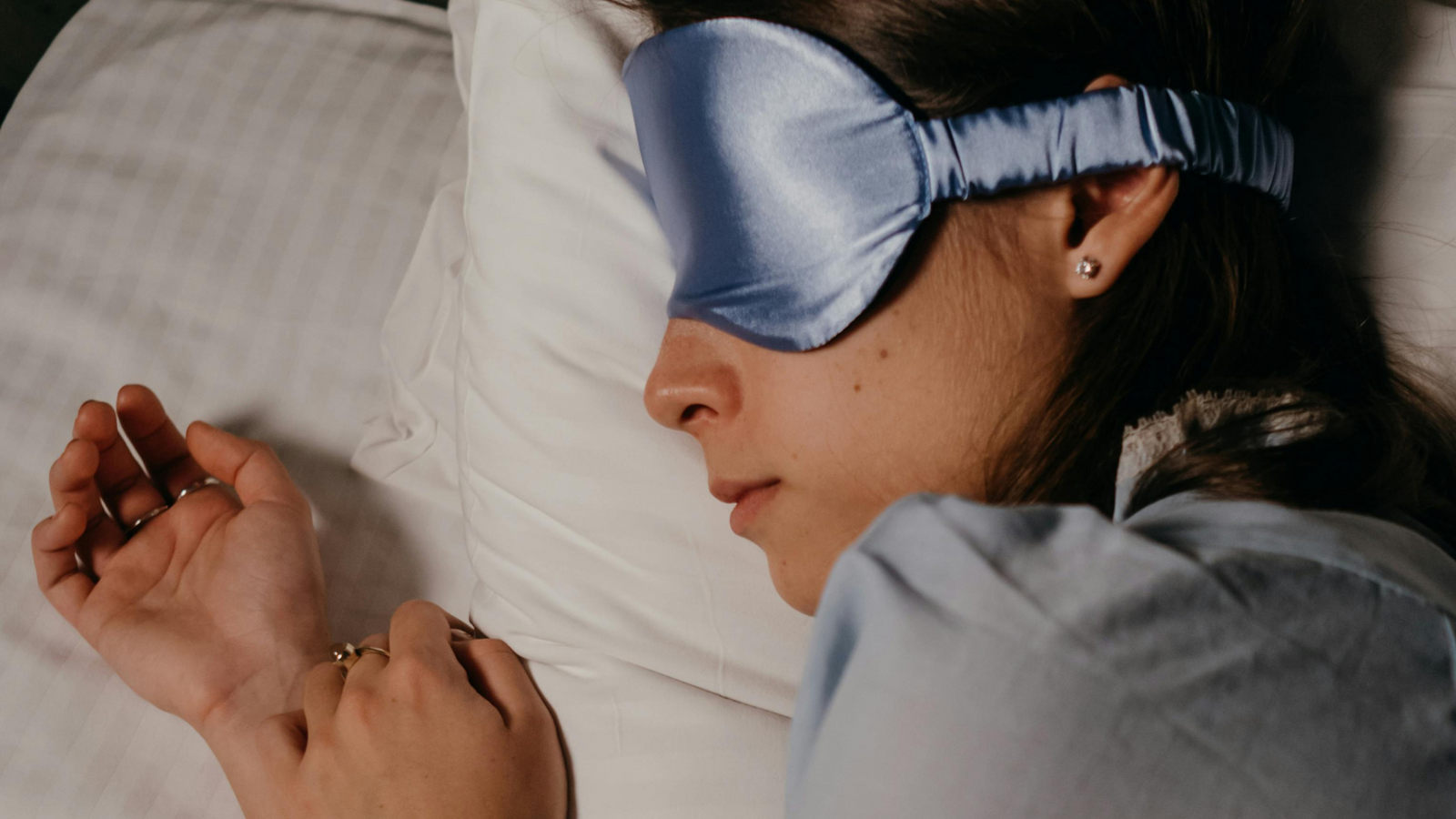Your Cart is Empty
Buy now, pay later or in 3 with Klarna
Get free shipping by subscribing to newsletter!
Fast shipping from our warehouse in the UK!
Buy now, pay later or in 3 with Klarna
Get free shipping by subscribing to newsletter!
Fast shipping from our warehouse in the UK!

Scrolling Before Bed Ruins Your Sleep and Your Mental Health?
You'retired, butinstead ofturning off the light,yougrabyour phone to scroll for a few more minutes…whichquicklyturnsinto anhour (or more). Thisphenomenon has aname:sleep procrastination.
In anera of constant screenexposure anddaily stress,it’sbecoming harder and harder todisconnect at night. Butwhy dowe strugglesomuch to go tobed,eventhoughwe know how importantsleepis?

In this article,wewillexplore:
YourPhone: A Trap ThatKeeps YouAwake
The LinkBetweenSleep Procrastination and MentalHealth
How to Break ThisHarmful Habit
1. YourPhone: A Trap ThatKeeps YouAwake
Our smartphones are designed to captureour attention, andthisdoesn’t stopwhen nightfalls.
The blue lightemitted by screensinhibits the production ofmelatonin, the hormoneresponsible forsleep.Normally,our body startsproducingit assoon as night sets in,preparing us forrest.However,whenwe look at screenslate at night,wesend acontradictory signal toourbrain,trickingitintothinkingit’sstilldaytime. As aresult,fallingasleepbecomes moredifficult, and thequality ofoursleepdeclines.

Beyond the effects ofblue light, the contentwe consumealsoplays a keyrole inourinability todisconnect. Social media, shortvideos, and notifications aredesigned tograbour attentionandkeep usengaged.Every scroll triggers asmallreward inourbrain, pushing us torepeat the action over and over.We tellourselves, “just five more minutes,” butthose five minutesquicklyturninto anhour.

The constantaccessibility ofour phonesalsocreates aform ofdependence.We’vebecomeaccustomed tofillingevery quiet momentwith a quickglance atour screen, andthis reflexdoesn’tdisappear atbedtime. Theproblemisthatthisoverstimulationprevents usfromnaturallywinding down,delayingsleepevenfurther.
2. The Link BetweenSleep Procrastination and MentalHealth
Sleep procrastinationisn’tjust abad habit,it canalsobelinked topsychological issuessuch asanxiety anddepression.
For some people,nighttimeis theonly momenttheytruly have forthemselves.After a long andstressfulday, the urge toextendpersonal time, at the expense ofsleep,canbestrong. Thisphenomenon,known as"revengebedtime procrastination",isespeciallycommonamongthosewhofeel alack of control overtheirdailyschedule.

Our phones can also serve as an escapefromnegativethoughts.Whenlying inbedwithoutexternal distractions,worries and stress cantake over. Scrollingthrough social media orwatchingvideoshelpsavoidthesethoughts, butitonlydelays theproblem. Evenworse, the contentwe consume cansometimesworsenouremotional state byexposing us tounrealisticcomparisons oranxiety-inducing information.
This behaviorultimatelycreates avicious cycle. Thelesswesleep, the moreexhausted and irritablewefeel thenextday. This fatigueincreases stress andsadness,making useven morelikely toseek distraction at night toavoidconfrontingtheseemotions. Over time,chronicsleepdeprivation canworsen mentalhealth issuessuch asanxiety anddepression.
3. How to Break This Bad Habit
If youseeyourself inthis situation, knowthatthere are solutions to helpyou regain control ofyoursleep.
The first stepis to set afixedbedtime and stick toit,even ifitfeelsdifficult at first. Tomakethis transitioneasier,graduallyreducing screen timebeforebedishighlyrecommended.Activating "night mode" onyour phone toreduceblue lightexposure can help, but the best optionis tocompletelyturn off screens at least30 minutesbeforesleep.

Replacing scrollingwith arelaxingactivity canalsomake ahugedifference. Reading a book,listening tocalming music, orpracticingmeditationhelpsyourbrainunwind andprepare forsleep. Journalingyourthoughtsbeforebed canalsobe an effectiveway toclearyourmind andavoidoverthinking.

Ifsleep procrastinationislinked tounderlyinganxiety ordepression,speakingwith aprofessionalmightbebeneficial.Therapy can helpidentify the root causes ofthisbehavior andprovidetailoredstrategies toovercomeit.
Conclusion
Postponingbedtimeis acommon habit,especially in the digitalage. Butunderstandingwhywe doitis the firststeptowardbreaking free. Byadopting a few simple habits,you can reclaimrestfulsleepandimproveyour mentalwell-being.
So tonight, challengeyourself:putyour phone downearlier andgiveyourself the gift of realrest! We’rehere to supportyou inthisjourney. Ifyoufoundthis articlehelpful,feel free tovisitourwebsite medcline.co.uk,whereyou’llfindplenty ofresources onsleep science,acid reflux,shoulder pain,pregnancy, andmuch more.Seeyousoon onMedCline:Feelbetter, livebetter! 😴✨



